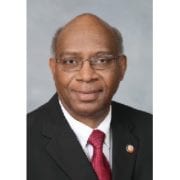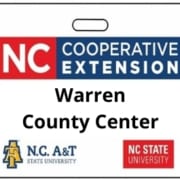The Local Skinny! Around Old Granville: Place Names In Warren And Franklin Counties
In a continuing discussion of local communities with odd names or curious origins, Bill Harris and Mark Pace Thursday again shone the spotlight on Franklin and Warren counties in the Around Old Granville segment of The Local Skinny!
Harris had been studying a 1911 map that Rand McNally had published and tested Pace’s knowledge about communities, some of which would no longer make the cut to be included in current maps of the area.
There’s Union Hill, for one, which was in the vicinity of Rocky Ford down in Franklin County. It had a post office from around 1834-38, Pace said.
Then there’s Brookston, named for the Brooks family, which originally was in Warren County but got redrawn at some point into what is now Vance County.
Jack, in Warren County near Littleton, was named for Jack Johnson, postmaster for the short-lived post office there. It’s just one of numerous areas that sported the first names of prominent or affluent people of the day, Pace said.
He mentioned others, including Margaret, Catesville and Drewry.
Have you ever heard of Lumdsen, an area between the Tar River bridge and Kittrell in Vance County? Pace said his research has turned up no family with that surname in Census records, but he said the name could have come from someone who worked for the railroad that came through the area.
In cases where there were no stations for the trains to stop, “people would literally tie a white handkerchief to a tree” to indicate that the conductor needed to stop and pick up passengers. The area known as Lumsden could have been named to honor a rail official, he added.
Shocco Springs in Warren County had a post office from the early 1830’s to 1866. This area became known as Lickskillet, an amusing name for an area that, before the Civil War, counted among its residents some of the most prominent and affluent families around.
Communities sometimes got named by wealthy landowners that lived nearby, like Odell in Warren County – named by the Alston family as an homage to the family castle in England.
But oftentimes, it was a post office in a particular area that helped communities get their names.
One spot in Warren County was Mountain View, Pace said. Situated between Macon and Vaughan, the Riggan family provided a half dozen or so of Mountain View’s postmasters between 1879 and 1929.
At one time, there were 32 post offices sprinkled throughout Warren County. This would have been before the introduction of rural free delivery, when people had to go to a central spot to pick up their mail. Often, that local spot was inside a country store, he added.
Franklinton has one the oldest, continually used post offices in the area, Pace noted.
CLICK PLAY!









